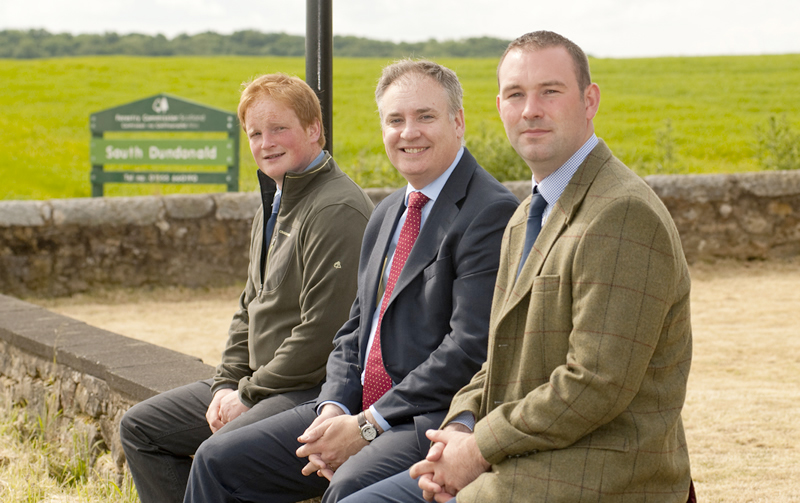
Scottish growers are to meet with Richard Lochhead to discuss the damage that current greening proposals will have on their business and to urge the Cabinet Secretary to pause for the sake of the sector.
At the meeting, scheduled to take place in the Scottish Parliament tomorrow (Thursday 2 October), the Union will call on Scottish Government to step back from recently announced rules on greening that go well beyond that currently required by Europe. Instead, the growers, led by NFU Scotland’s Combinable Crops Chairman Andrew Moir, will urge Mr Lochhead and his officials to adopt a phased approach.
That would see the simple greening measures proposed by Europe being adopted in year one of the new CAP, the impact that those measures have on greening objectives properly assessed, and then make any necessary adjustments to greening rules in the following scheme years. Any new greening rules deemed necessary could be introduced in 2016, at the same time as the Scottish Government’s delayed adoption of the equivalence measures available under the EU scheme.
The growers will point out that by sticking with basic European requirements at the outset, it would minimise the compliance headache faced by both growers and Scottish Government inspectors, and reduce the likelihood of infraction proceedings were Scotland faced with an EU audit in the future.
Concerns over Scottish Government’s approach to greening came to a head last week when it took the decision to impose management restrictions on those hoping to grow nitrogen fixing crops in a bid to meet their greening obligations. That decision went much further than EU requirements and is in contrast to the way rules are being applied to growers in other parts of the UK.
A Union delegation in Brussels last week was informed by EU officials that, in their opinion, any Member State or region that place additional standards into greening requirements would be audited to those standards. Were Scottish Government to introduce gold-plating, it would need its officers to inspect to those standards or run the risk of infraction.
Speaking ahead of the meeting, Andrew Moir said:
“European requirements on greening offer up a fair degree of simplicity and flexibility. Bolting on additional greening requirements at a national level runs the risk of creating an intricate web of rules that will trap farmers, inspectors and auditors.
“On principle, we are asking for the Cabinet Secretary not to gold-plate in year one of the new scheme and adopt the simple systems that are available.
“Pausing would give farmers the opportunity to work within the basic rules and an impact assessment can identify if the base EU measures have delivered on greening objectives. Then, if necessary, greening extras can be bolted on at the same time as the Scottish Government introduces equivalence measures.
“Taking time out to properly design Scotland’s greening menu can ensure it is workable at farm level, the standards fit with a simple audit process and simplicity and environmental benefits are delivered.
“As well as workable standards on nitrogen fixing crops, conversion factors were also built in to EU greening protocols to simplify the measurement of buffer strips and field margins. These are all smart greening devices that would fit with farming in the real world but which the Scottish Government has so far excluded from its evolving package. Defining Scotland’s greening measures has been a frustratingly protracted process at Scottish and EU levels where even basic concepts such as the definition of fallow have yet to be agreed.
“Unfortunately, the current approach in Scotland runs the risk of creating a platform of management and administration detail around greening that would be very difficult to fit into current farming practices and create the kind of compliance trap that the Commission has been trying to avoid.”
